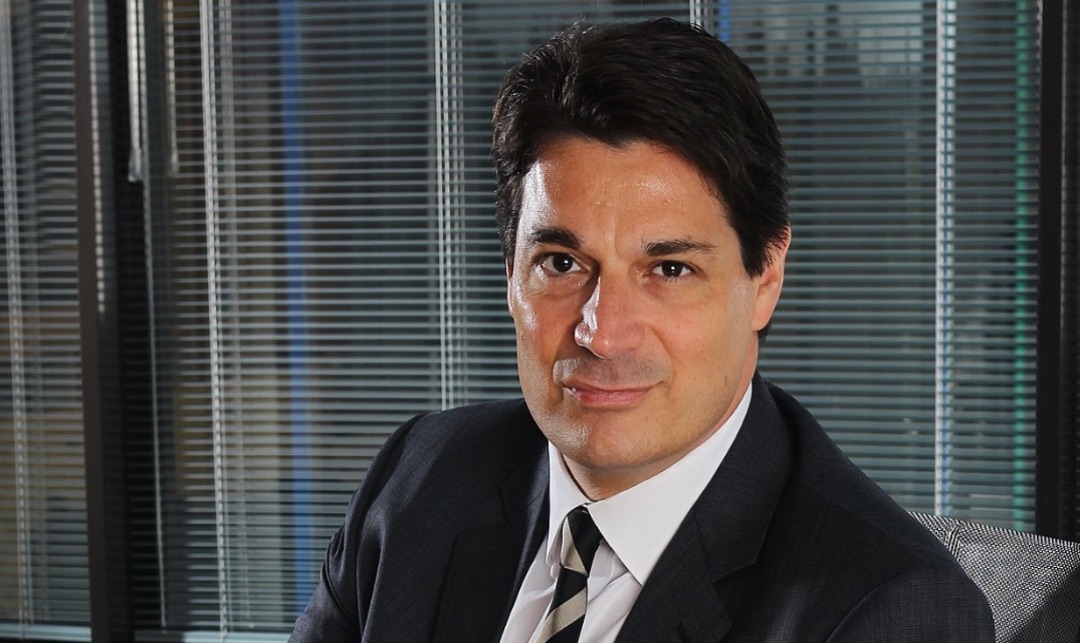Bruno Maglione grew up all around the world, which prepared him well for a globetrotting career in the entertainment industry. After stints as an executive for Euro Disney, Universal Studios, and Marvel, Maglione made the move to the agency side at IMG, where he crafts creative licensing deals for more than 100 major clients, from Queer Eye to Armor All. He has increased IMG’s licensing arm’s top and bottom lines more than tenfold since 2006.
Maglione tells CSQ how he ended up as the agency’s licensing chief, overseeing more than 800 deals a year from more than 20 offices around the world, and the creative ways he’s working with brands to generate revenue during a shutdown.
WHERE DID YOU GROW UP?
I was born in New York, but my parents were both Italian and I grew up mostly outside of the United States—in Italy, the Philippines, Switzerland, and other places—before returning for college at Brown University in 1985 and my MBA at Harvard Business School in 1991.
Three years out of business school, I was very lucky to be hired by Steve Burke, who then was a young executive sent to Paris by Disney to help save what at that time was a debt-plagued disaster zone called Euro Disney. I remember meeting Steve just a couple of weeks before the park was going to launch the new Space Mountain attraction. That cost over $100M to build and was the big-bet, double-down, showcase move to relaunch the park. Steve said, “We are launching Space Mountain … come to Paris with your wife, attend the launch at Disneyland, and we’ll figure out what you do for us later.”
I ended up being in charge of Disney sponsor partnerships and activating those sponsorships with marketing campaigns, including American Express VIP Experiences, Nestlé promotions, Renault marketing events, and limited series vehicle launches. They then added Disney Synergy to my responsibilities, which allowed me to get great exposure to all the other Disney divisions—film, TV, the Disney Stores, home video, even the music and theatrical divisions. Steve went back to the US only a few months after I joined, so my exposure to him ended up being limited, but that was my door in. From there I went to Universal, then Marvel, and then IMG in 2006.

Bruno Maglione runs IMG’s wide-ranging licensing business.
DID YOU ALWAYS WANT TO BE IN THE ENTERTAINMENT INDUSTRY?
I always did because I’ve always loved books, movies, television, music—and not only American entertainment. Living abroad most of my life exposed me to literature, film, and music from the non-English-speaking world as well and only intensified my interest in all of these areas. When I started at Disney, I could tell immediately that I was much more personally engaged and interested in my work than in previous jobs, even though I learned a lot from those other experiences. So, I knew I would be staying in this industry from that point forward.
HOW DID YOU END UP MAKING THE MOVE FROM MEDIA TO THE AGENCY SIDE AT IMG?
I was hired by Ted Forstmann not long after he acquired IMG after the IMG founder, Mark McCormack, died. Sports have always interested me in addition to entertainment, and, at that time, IMG was mainly a sports company.
While in college, I had read McCormack’s book What They Don’t Teach You at Harvard Business School, which was a New York Times best-seller. The man, the book, and the company fascinated me, so when the opportunity arose in 2006, this had already been gestating in my mind for quite some time as a company I would like to work for. Besides the company itself, what appealed to me then and still does now are two aspects. One is the variety, inherent in an agency setting, of working with a wide range of clients, and by extension client-related ecosystems. The second is the entrepreneurial spirit of agencies where you need to, as it were, hunt for your own meals—it’s not handed to you. You need to find your clients and deliver for them.

Maglione and his family.
THE ENTERTAINMENT INDUSTRY IS CHANGING FAST. HOW WOULD YOU START YOUR CAREER TODAY IF YOU WERE LOOKING TO GET INTO IT?
I think the entertainment industry is much more integrated today with the general business environment than it was 20 or 25 years ago. The leading entertainment companies are much bigger than they were then. They are involved in more businesses and more businesses are involved with them. In particular, the tech world—Apple, Amazon, Google, and so on—larger, richer companies many of them, are encroaching and converging into the entertainment space as content creators or distribution platforms or both. So is the gaming industry in many respects.
The business has become a lot more multifaceted, more complex, and the financial investments and roll-of-the-dice bets are bigger. For all these reasons, I think having some meaningful professional experiences in some of these adjacent areas—finance, tech, strategy consulting—can be very useful even if the ultimate ambition is to pursue a career in entertainment. This was to some extent my own path, although in my case by accident, but I’ve found it to be valuable. Today, I might do it more deliberately—although not for too long. You still want to get into the industry of your choice relatively early.
COVID-19 SHUT DOWN LARGE PARTS OF THE ENTERTAINMENT BUSINESS, INCLUDING LIVE SHOWS AND MOVIES. WHEN WAS THE MOMENT THIS BECAME REAL FOR YOU?
On the entertainment side, I think the first big announcement that made it very real for me was the postponement of the James Bond release. It was scheduled for April 2 and has now moved back to November. On a personal level, I love the Bond movies and there hasn’t been one in a few years, so when I saw that date move, I knew plenty of other things would follow and they have. In sports, it was the decision to postpone the UEFA Euro 2020 soccer tournament to next year. That’s like the third-biggest sports tournament in the world, and this year it was going to be played in 12 European countries versus one host country. We are handling the licensing for that event, which typically requires working with upward of 70 companies for a wide range of fan merchandise that includes thousands of products, and it was scheduled to start mid-June. Back in March, I thought we would be OK, but of course this virus has proven to be a longer-term problem, so it was moved to next year, as were the Tokyo Summer Olympics.
WE’VE SEEN CERTAIN “STAY-AT-HOME” SECTORS, SUCH AS COOKING, HOME IMPROVEMENT, AND HOME GYMS, SEE A HUGE INCREASE IN INTEREST DURING THE PANDEMIC. HAVE YOU WORKED ON LICENSING DEALS THAT CAPITALIZE ON THESE TRENDS?
We have very proactively and deliberately gone after those sectors where we saw market resilience and even growth during this pandemic. For example, we have a wide range of home gym products under the UFC brand that is selling all over the world—a collection of strength equipment for full-body workouts designed to the specifications of those top athletes. College graduates and other young adults who years ago left their family homes are now back and needing accommodations that maybe are no longer there. We worked with the Sealy mattress brand to develop a range of inflatable mattresses that will sell at Costco and other retailers. Orders are strong.
This month we are introducing a top-of-the-line Jeep-branded e-bike with a Colorado-based outdoor company called QuietKat. Outdoor pursuits and camping and hiking is an area of growing interest and activity, as travel abroad or farther afield has been curtailed, so we have been doing a lot in that area with Jeep, as well as Yamaha Seascooters and Goodyear hiking boots. Recently we launched a range of cookware, mixers, and kitchen tools with the Delish media brand owned by Hearst.
WHAT ARE SOME INNOVATIVE WAYS YOU’VE WORKED WITH MEDIA COMPANIES TO KEEP THEIR BRANDS FRESH AND CONTINUE TO GENERATE REVENUE WHILE TV AND FILM PRODUCTION ARE ON HOLD?
We’ve just launched a major Queer Eye furniture collection at Walmart.com to coincide with season five of the Netflix show. It includes sofas, sectionals, beds, TV stands, writing desks, and much more—some 80 different items, all with a clean, industrial-modern aesthetic. It has terrific reviews and has been doing a brisk business—as can be expected from a line of 80 items sold at Walmart—from the opening day of sale. We have fashion and lifestyle consumer product partnerships in the works also for the Killing Eve and Normal People programs. It’s no secret that Killing Eve, particularly with the Villanelle character, has a sartorial style and aesthetic that is an element of its appeal. The right sort of products and collaborations will leverage that aspect while simultaneously emphasizing it. And given that Killing Eve is in its third season, the timing is perfect. With new, original IP, you typically want to see it develop over at least two or three seasons before considering its ancillary potential in licensing.
Next year we will be launching a toy line and other products with Anastasia Radzinskaya, the 6-year-old YouTube star whose Like Nastya channel is among the most subscribed worldwide. With licensing arrangements focused on children, the objective is to deliver products that keep children engaged and ensure the longevity of these brands.














































